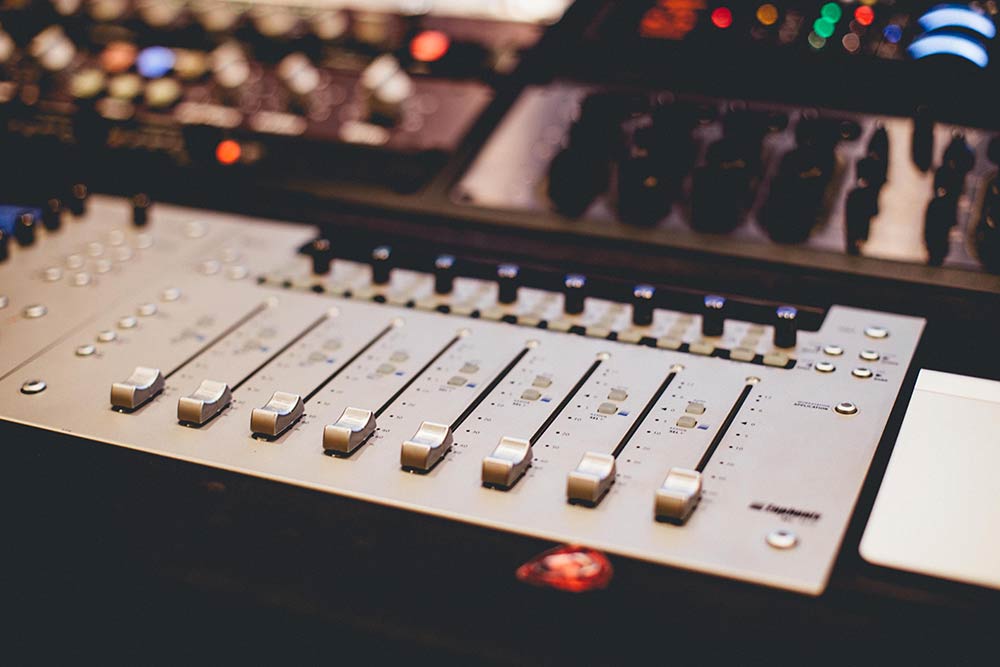Introduction: The Importance of Quality in Buying Beats
The Importance of Quality in Buying Beats: How to Choose the Right Instrumentals for Your Music
When it comes to creating music, the beat is often the foundation upon which the rest of the song is built. As a result, you must choose instrumentals that not only fit your style and message but also meet a certain standard of quality. In this blog post, we’ll discuss the importance of quality in buying beats and provide some tips on how to choose the right instrumentals for your music.
First and foremost, it’s important to understand that not all beats are created equal. Some beats may have a great vibe and a catchy melody, but lack the technical qualifications necessary to make them usable in a professional setting. Other beats may have great production value, but may not be suitable for your particular style or message. It’s essential to keep both of these factors in mind when choosing beats for your music.
The Production Value: How to choose the right instrumentals for your music
One of the key things to look for when buying beats is the production value. This includes things like the quality of the recording, the mixing and mastering, and the overall sound design. A beat with great production value will have a clean and polished sound that is easy to work with and will help your music stand out.
Another important factor to consider is the overall style and vibe of the beat. This can include things like the tempo, the instrumentation, and the overall feeling of the instrumental. It’s important to choose a beat that aligns with your style and the message you are trying to convey in your music.
When you’re looking for beats to purchase, it can be helpful to listen to multiple beats and compare them. Take note of the production value, style, and vibe of each beat, and compare them to your music. This will help you to find the right beats that will work well with your music, and help to make your music sound as good as possible.
Rights and Usage: Understanding the terms of use before purchasing
Finally, it’s important to make sure that you are buying beats from reputable sources. There are many websites and marketplaces where you can purchase beats, but not all of them are created equal. Be sure to do your research and find a reputable source that offers high-quality beats. This will help ensure that you’re getting the best possible instrumentals for your music.
In conclusion, the quality of the beat is an important factor in making great music. By focusing on production value, style, and vibe, and finding reputable sources for your beats, you can ensure that you’re choosing the right instrumentals for your music. As a result, you’ll be able to create music that sounds great, and that can help you to stand out in the music industry.
The Production Value: How to choose the right instrumentals for your music
Another important aspect to consider when buying beats is the rights and usage of the instrumental. It’s important to make sure that you understand the terms of use for the beat you’re purchasing, and that you have the proper rights to use it in your music. Some beats may only be licensed for non-commercial use, while others may have more restrictive terms. It’s essential to understand the terms of use before you purchase a beat, as using a beat without proper rights can lead to legal issues down the road.
Additionally, it’s important to consider the exclusivity of the beat. Some beats may only be sold to a single artist, while others may be sold multiple times. It’s important to know whether or not the beat you’re purchasing is exclusive, as this can affect the uniqueness of your music. If you’re looking to make a name for yourself in the music industry, it’s important to have original and unique instrumentals that set your music apart from others.
Another important aspect to consider when buying beats is the genre of the instrumental. Different genres have different soundscapes, instrumentation, and production techniques, therefore it’s important to find a beat that matches the genre of your music. It’s important to match the beat to the style of your music so that it complements your lyrics and vocals perfectly.
One more tip when buying beats is to listen to the beat in multiple contexts. This means listening to the beat in different environments, such as on headphones, in the car, or through a speaker. This will give you a better sense of how the beat will sound in different settings and can help you to make a more informed decision when purchasing a beat.
Tempo: How to match the tempo of the beat to your song
Another important factor when buying beats is the tempo of the beat. Tempo is the speed of the beat and it can be measured in beats per minute (BPM). Different genres of music have different typical tempo ranges, for example, hip-hop and rap beats typically have a tempo between 60-110 BPM, while house music has a tempo range of 120-130 BPM. It’s important to make sure that the tempo of the beat matches the tempo of your song and genre.
It’s also important to consider the structure of the beat when buying it. A beat’s structure refers to the arrangement of the different elements within the beat, such as the drums, bass, and melody. A well-structured beat will have a clear introduction, verse, chorus, and outro, which can help to make the beat more versatile and easier to work with. It’s important to make sure that the structure of the beat matches the structure of your song so that the two elements complement each other perfectly.
Progression: Finding beats that have a sense of progression
Another tip when buying beats is to try to find beats that have a sense of progression or development. This means that the beat should have a clear beginning, middle, and end, and should tell a story or convey a feeling. This can help to make the beat more engaging and interesting and can help to make your music stand out.
Lastly, it’s important to consider the price of the beat when buying it. There is a wide range of prices for beats, depending on the quality and exclusivity of the instrumental. It’s important to find a balance between the cost and the quality of the beat so that you’re getting the best value for your money. It’s also important to shop around and compare prices from different sources so that you can get the best deal possible.
In conclusion, buying beats for your music is an important decision that can have a big impact on the quality and success of your music. By focusing on the production value, style, vibe, rights and usage, exclusivity, genre, tempo, structure, progression, and price of the beat, you can ensure that you’re choosing the right instrumentals for your music. It’s also important to find reputable sources for your beats and to make sure that you understand the terms of use before purchasing a beat. By following these tips and guidelines, you can ensure that you’re getting the best possible instrumentals for your music, which can help to make your music stand out in the music industry.
Personalizing the beat: Adding your own touch to make it unique
It’s also important to remember that buying a beat doesn’t mean the creative process ends there. As a musician, it’s important to add your own touch and personalize the beat to make it your own. This can include adding your own melodies, harmonies, or lyrics, or even re-sampling and re-arranging the beat to fit your own style. By taking the time to personalize the beat, you can ensure that your music is truly unique and reflects your own personal style and message.
In conclusion, buying beats is an important step in the process of creating music, and it’s important to choose instrumentals that match your style, and message and meet a certain standard of quality. By understanding the importance of production value, style, rights and usage, exclusivity, genre, tempo, structure, progression, and price, you can ensure that you’re getting the best possible instrumentals for your music. By following these tips and guidelines, and by personalizing the beat to make it your own, you can create music that sounds great, and that can help you to stand out in the music industry.
Custom Beat Production: An alternative option to buying pre-made beats
It’s also worth mentioning that buying beats doesn’t necessarily mean you have to purchase them from pre-made libraries or marketplaces. Many music producers and beatmakers offer custom beat production services, where they can create a beat tailored to your specific needs and preferences. This can be a great option if you’re looking for something truly unique and exclusive, and can also give you more control over the final product.
When considering custom beat production, it’s important to do your research and find a reputable producer with a proven track record of creating high-quality beats. It’s also important to be clear about your vision for the beat and to have clear communication with the producer to ensure that the final product meets your expectations.
Techniques and Methods: Traditional instrumentation vs digital software
Another thing worth mentioning is that not all beats are created using the same methods or techniques. Some beats are created using traditional instrumentation such as drums, guitar, and keyboards, while others are created using digital software, such as Ableton or Logic. Each method has its own unique sound, and it’s important to consider which one is the best for your music.
Conclusion: The importance of considering all aspects of music production
Lastly, it’s important to remember that buying a beat is just one aspect of the music production process. It’s important to consider the lyrics, melody, and overall composition of the song as well. A great beat can only take you so far, it’s important to put in the work to make sure the rest of the song is well-crafted and polished.
In summary, buying beats is an important step in creating music, and it’s important to choose instrumentals that match your style and message while meeting a certain standard of quality. By understanding the importance of production value, style, rights and usage, exclusivity, genre, tempo, structure, progression, and price, and by considering custom beat production options, traditional and digital methods and the overall composition of the song, you can ensure that you’re getting the best possible instrumentals for your music. This will help you to create music that sounds great and can help you to stand out in the music industry.

